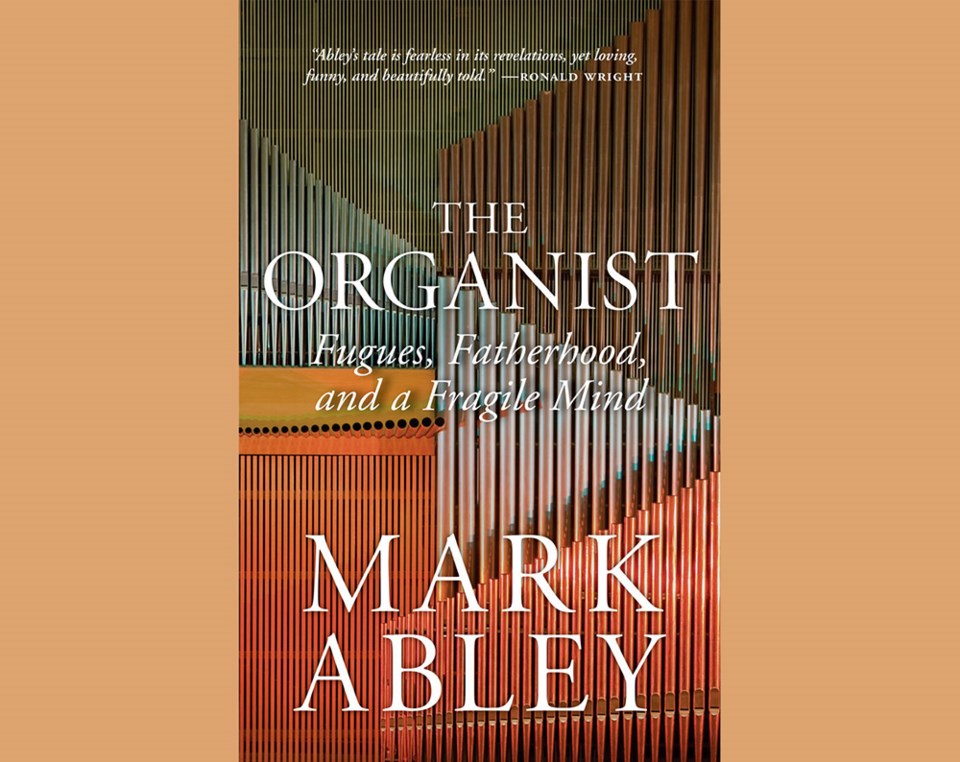The Organist: Fugues, Fatherhood, and a Fragile Mind
By Mark Abley
Published by University of Regina Press
$24.95 ISBN 9780889775817
There is nothing Mark Abley can’t write about. Whether its about smalltown Saskatchewan, threatened languages, imagined conversations with dead historical figures or ruminations on the English idiom, Abley is indeed able. As poet and editor and columnist he inspires confidence in writers and readers alike, so that every new release is billed as “long-awaited.” Books take as long as they take, you cannot rush a writer. And in the case of this newest book, a nonfiction reminiscence on his life with his father, Abley could not have written it a moment too soon.
There is never a moment in The Organist when the reader does not feel the immense pressure and tension in the writer to be fair, honest and fearless in his depiction of his father. His mother reminds Abley that his father had “an artistic temperament,” as if that somehow justified his occasional tantrums and extreme behaviours, such as locking himself in the bathroom before an international flight. Or wishing aloud to a dinner party of relative strangers that someone assassinate Margaret Thatcher.
“Harry Abley”, writes Abley about his father, “had a range of identities. He was a son, a husband, a father, a football fan, a migraine sufferer; a proud Canadian and a lifelong Englishman; a close friend of almost no one.” At various moments, he worked as a records clerk, a demonstrator of electric organ, an assistant at the Standard Motor Company. “He had no affection for any of these jobs. He did them for the money.” He was a man of his time who worked at jobs he hated to provide for his family.
Above all Harry Abley was a musician. “He played, he conducted, he taught; he accompanied, he composed.” It was not unusual for him to get up mid-meal and jot down a composition before he lost hold of it. And Abley’s mother, a stickler for manners, tolerated such behaviour because understood “this was no whim.”
But most important, when his father was composing neither Abley nor his mother “had to worry about his state of mind. Those were the good times.” Music was “a way to God. Or God was a heavenly version of Johann Sebastian Bach.” Abley quotes from the Gnostic Gospels: “If you bring forth what is within you, it will save you.” But if you do not bring it forth, “it will destroy you.” “I don’t suppose it will save me now to tell the story of my father,” he writes. “But I fear it may destroy me if I don’t.”
Having read this book a couple of times, I thank Abley for looking at his parents as full and human paradoxes, and in so doing, showing us how to tell our own, in full honesty, that we love them. And that we need not wait until after they die to do so.
THIS BOOK IS AVAILABLE AT YOUR LOCAL BOOKSTORE OR FROM WWW.SKBOOKS.COM



.JPG;w=120;h=80;mode=crop)
